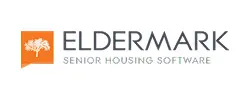We Offer AI-Powered Medical Imaging
Solutions to Diagnose Faster
We integrate AI seamlessly into DICOM systems to enhance image quality, accelerate diagnosis, and automate detection. Our intelligent imaging solutions empower radiologists with faster, more accurate, and data-driven insights for improved patient outcomes.
We integrate AI and computer vision into DICOM systems to improve image fusion, lesion detection, and reconstruction, enhancing diagnostics and surgical planning. These advanced technologies support healthcare professionals in delivering faster and more accurate medical imaging analysis.
Our AI-driven solutions accelerate the reconstruction process for CT and MRI scans without sacrificing image quality. This enables quicker diagnosis and treatment decisions, improving patient care by reducing wait times and enhancing the clarity of volumetric medical images.
AI algorithms automatically detect anomalies in MRI, ultrasound, and CT images. This timely identification supports clinicians in diagnosing conditions earlier, improving patient outcomes through more precise and efficient analysis of radiology images and medical scans.
Deep learning models classify and prioritize imaging cases based on severity, increasing diagnostic accuracy. This technology supports structured reporting and helps radiologists focus on critical cases, streamlining workflows and improving overall efficiency in medical image management.
By combining multiple imaging modalities into composite images, AI-enhanced image fusion offers clearer visualization. This capability aids advanced surgical planning and provides healthcare professionals with comprehensive views, improving interpretation of complex radiology studies.
Convolutional neural networks extract important regions from complex scans, enhancing diagnostic interpretation. This technology assists clinicians in identifying critical features within medical images, supporting better decision-making and improved patient care.
AI-powered quantitative analysis detects subtle patterns within DICOM attributes, facilitating informed clinical decisions. This approach also optimizes storage use by identifying relevant data, contributing to efficient management of medical imaging archives.
Radiomics uses AI to extract quantitative imaging features, aiding personalized cancer treatment planning. This advanced analysis supports precision medicine by uncovering novel patterns in medical images, helping tailor therapies to individual patient needs.
Automated tools for detection, segmentation, and annotation accelerate radiology reporting. These AI-driven features enhance workflow efficiency, allowing healthcare professionals to focus on diagnosis and patient care rather than manual image processing tasks.





















